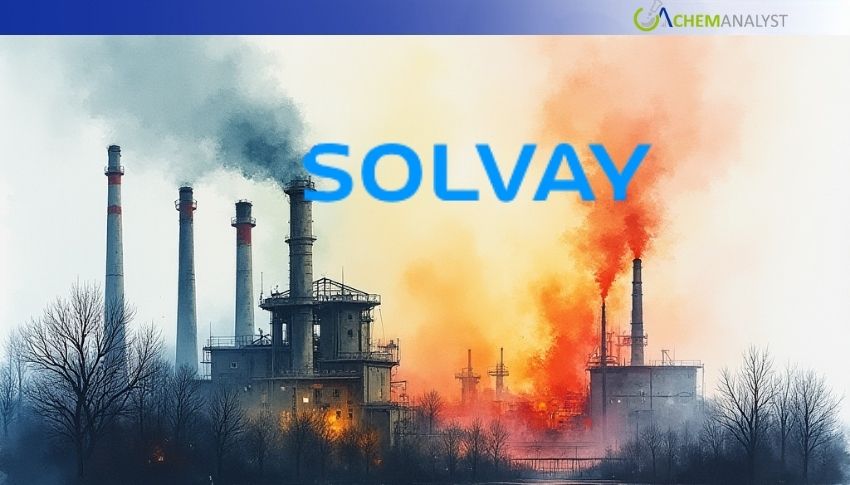Welcome To ChemAnalyst

Solvay integrates biogenic CO2 at its French plant, reducing Scope 3 emissions and enhancing sustainability in soda ash production.
Solvay has made a significant advancement in its journey toward sustainability by successfully reducing Scope 3 greenhouse gas emissions at its soda ash and bicarbonate production facility in Dombasle, France. This progress has been achieved through the integration of biogenic carbon dioxide (CO2), sourced from Air Products, into its manufacturing processes. This strategic move is projected to cut approximately 4,000 tons of CO2 emissions each year.
Air Products, a global leader in industrial gases, is playing a key role in enabling this shift. Traditionally, Solvay relied on CO2 sourced from ammonia-based processes. However, these sources have become increasingly unreliable due to volatility in energy markets and global decarbonization efforts. By transitioning to biogenic CO2—originating from the fermentation byproducts of bioethanol—Solvay is not only reducing its environmental footprint but also ensuring a more consistent and sustainable supply of this critical raw material.
Currently, around 50% of the CO2 used at the Dombasle site is now sourced regionally and renewably. This change aligns with Solvay’s overarching climate goals and simultaneously mitigates supply chain risks. Diversifying away from ammonia-derived CO2 provides greater flexibility and supply security, enhancing operational resilience.
Anton Daniëls, Solvay’s Chief Procurement Officer, emphasized the importance of this development: “This collaboration with Air Products represents a tangible milestone in our mission to lower Scope 3 emissions. The adoption of biogenic CO2 reflects our dedication to making our supply chain both environmentally sustainable and structurally sound.”
Frank Peeters, European Strategic Account Manager at Air Products, added, “We are honored to support Solvay in its efforts to implement more sustainable manufacturing practices. Our provision of biogenic CO2 underscores our commitment to helping customers reduce emissions and shift toward low-carbon, dependable production methods.”
The Dombasle initiative builds on earlier successes, notably Solvay’s implementation of biogenic CO2 use at its La Rochelle facility. Encouraged by these results, Solvay is now expanding the model to its Rosignano plant in Italy. These actions form part of the company’s broader roadmap to reduce Scope 3 emissions by 20% by the year 2030.
This latest initiative highlights how strategic partnerships and innovative sourcing can drive meaningful progress in industrial decarbonization. It also demonstrates how targeted collaborations, such as the one between Solvay and Air Products, can reinforce the resilience and sustainability of supply chains in energy-intensive sectors.
By embracing renewable CO2 alternatives, Solvay is not only decreasing its carbon footprint but also advancing a model for other industrial players to follow in their own climate transitions.
We use cookies to deliver the best possible experience on our website. To learn more, visit our Privacy Policy. By continuing to use this site or by closing this box, you consent to our use of cookies. More info.
